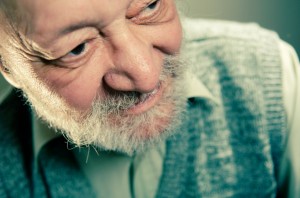Alcohol Abuse Among The Elderly
Alcohol related problems put elderly people in the hospital more often than heart attacks. But alcohol abuse among the elderly is more hidden that in any other age group because of social isolation, loneliness and depression. Often the signs of alcohol abuse among the elderly mimic other signs of aging, so doctors misread the signs.
Alcohol Abuse Among The Elderly: Causes
Alcohol abuse among the elderly sometimes starts with the life changes that can accompany aging. Many older Americans develop drinking problems due to depression, illness, or death of a loved one. The death of a spouse can set off a cycle of depression, poor nutrition, alcohol abuse, and abusing medications. The incentives for a younger person to seek help are often not there for an older person. They don’t have the same motivation to recover.
Alcohol Abuse Among The Elderly: A hidden problem
Anyone at any age can have a drinking problem. Sometimes, alcohol abuse among the elderly goes unnoticed because the person has been drinking moderately their whole life, and their family does not notice when their drinking suddenly increases. Forgetfulness, loss of balance, and mood swings that may indicate alcohol abuse among the elderly can be chalked up to old age or other health problems.
Alcohol Abuse Among The Elderly: Why it is dangerous?
Alcohol abuse among the elderly deserves particular attention because the aging process affects how the body handles alcohol. The same amount of drinks can have a greater effect as a person gets older. Also, many older Americans take prescription medications on a regular basis. Their medication can interact with the alcohol and cause dangerous, even deadly, side effects. Some medical conditions that are common among older people, such as high blood pressure, ulcers, and diabetes, can get worse with alcohol use.
Even drinking a small amount of alcohol can impair judgment and reaction time leading to an increase in accidents and falls. Accidents and falls in elderly people can be particularly dangerous since their bones are often more prone to break and they don’t recover as quickly from injuries. Alcohol abuse among the elderly can also cause cancer, liver cirrhosis, and brain damage. Alcohol also affects blood sugar levels in elderly people with diabetes.
Alcohol Abuse Among The Elderly: Getting help
Doctors may be hesitant to confront an elderly person about alcohol abuse. Many of them consider it to be a sensitive issue. Elderly people are also less likely to disclose alcohol abuse to their doctor. Also, there are far fewer treatment programs for elderly people with alcoholism, so doctors may not know where to send patients for help. An elderly person may have a hard time at a traditional treatment program since many of the clients are much younger. A 75 year old alcohol abuser may have a hard time relating to a 20 year old cocaine addict.
However, if they do seek help, elderly people often do very well in treatment. The hard part is long term recovery once they are home and alone again.


